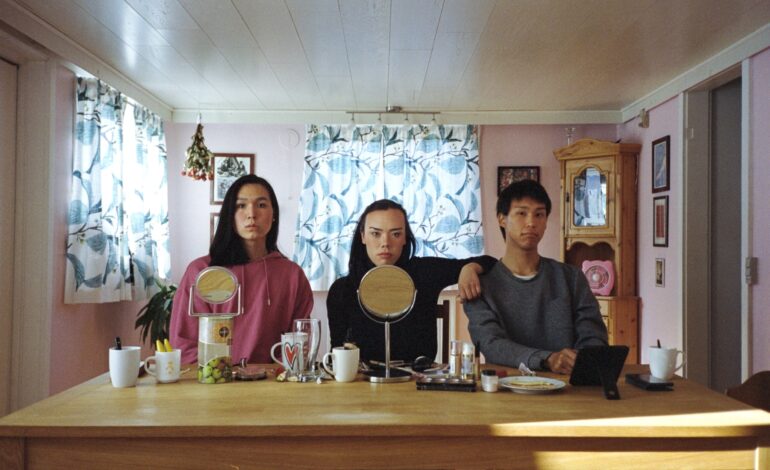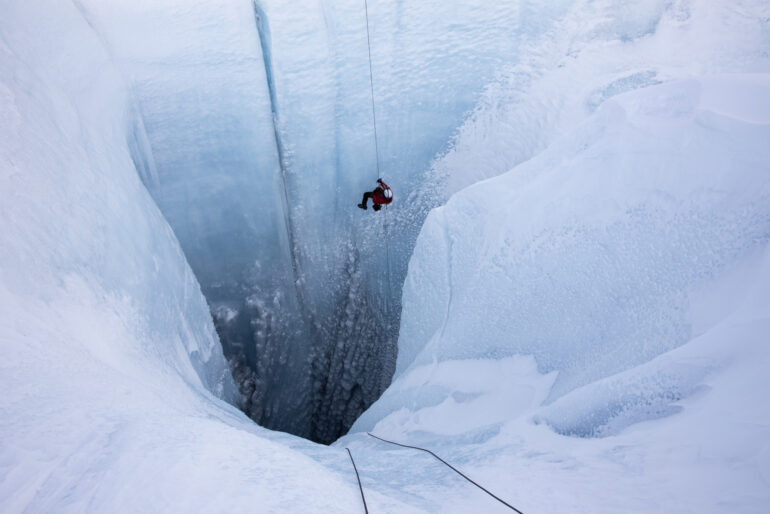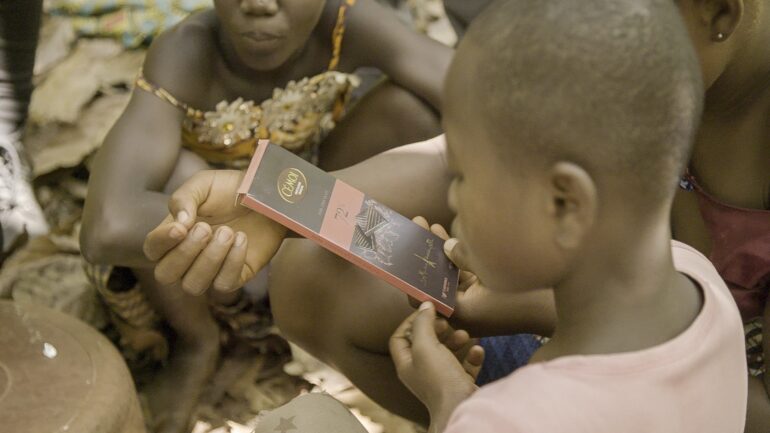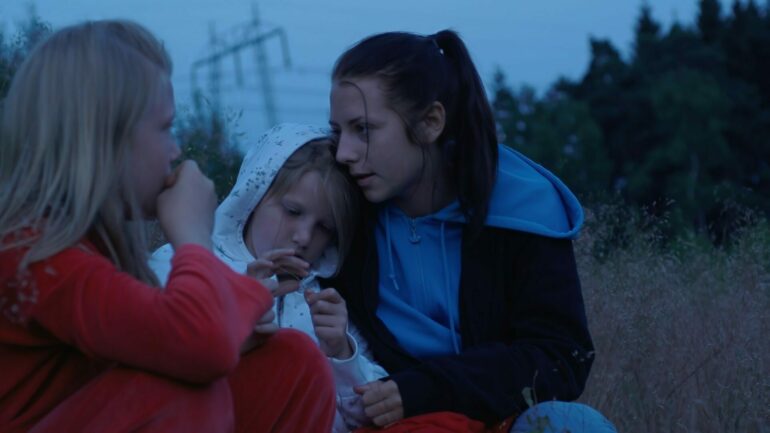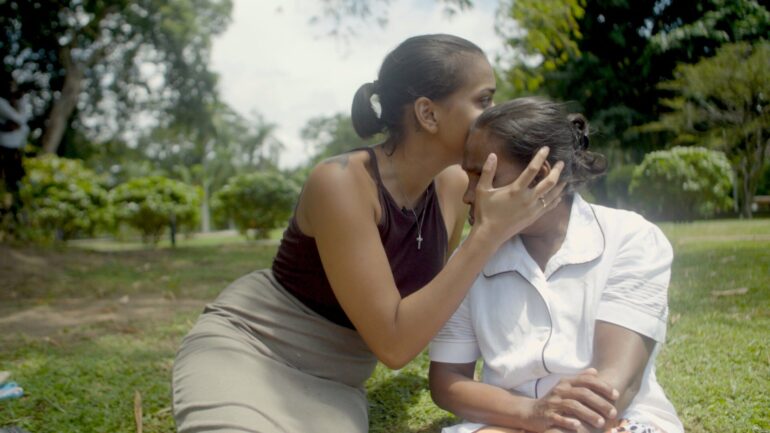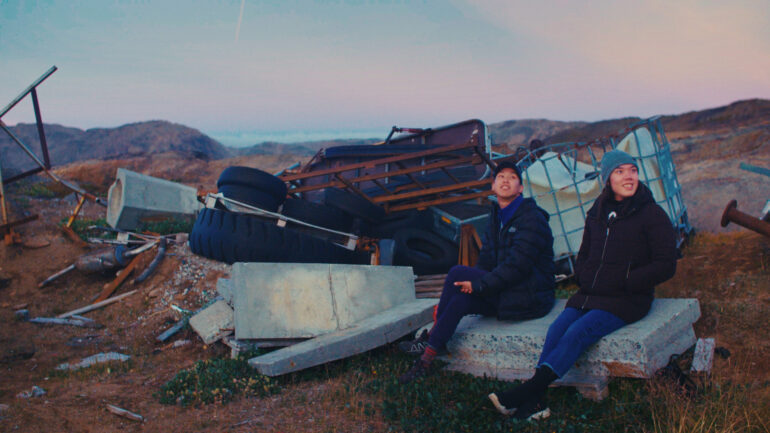WRITTEN BY: Annika Pham
More than 200 new films will be screening during the hybrid documentary film festival in Copenhagen, which spotlights Russia and Ukraine, as well as Art, Science and Society.
After two years of shutdown due to the pandemic, CPH:DOX is back as a hybrid event, with a strong selection of 200 new international films, including 76 world premieres and 59 competition films spread across the five main competition strands.
Films will be screening in cinemas in Copenhagen between March 23-April 3rd, and selected titles will be available for streaming in Denmark between April 1-10.
Besides the main competition programme, highlights this year include a spotlight on Art, Science and Society, as well as a Focus on Russia and Ukraine, to reflect the current tragic events in Ukraine.
“Right now, our thoughts are first and foremost with the people in Ukraine, a sovereign European state unlawfully invaded by an autocratic regime,” said artistic director Niklas Engstrøm. “In Kyiv, the great festival Docudays UA was supposed to happen around the same time as CPH:DOX. That is no longer possible. In that perspective, it feels like an incredible privilege to be able to gather the international documentary community as well as the audience in Denmark around a cultural manifestation like CPH:DOX.“
“A documentary film festival is not only a celebration of cinema, it is also an opportunity to critically reflect on reality, to engage in democratic dialogue and to discuss how our views of the world have consequences, sometimes fatal consequences. With CPH:DOX 2022, we strive to create a space for these hugely important discussions”, Engstrøm said.
Denmark’s Oscar-nominated outfit Final Cut for Real (Flee) is involved in two films showcased at the Focus on Russia and Ukraine, dealing with the effects of war on children.
Final Cut for real’s Monica Hellström has produced Simon Lereng Wilmont’s Sundance and Göteborg winning film A House Made of Splinters, about a shelter for children, set in Lysychansk, Eastern Ukraine, (see separate story here) while her colleague Anne Köhncke has co-produced the film Outside by Ukrainian filmmaker Olha Zhurba, competing in the main DOX:Award section.
Outside focuses on Roma (13), a young boy, neglected by his family and the state, who became a poster boy of the 2014 Ukrainian Revolution. The director has followed Roma for seven years, as he drifts through life, drug abuse, influenced by his loyal and criminal older brother, who is just as scarred as him by their shared upbringing.
The film produced by Ukraine’s Moon Man, in co-production with Final Cut for Real and the Netherland’s Tangerine Tree, received backing from DFA Bertha Fund, the Netherlands Film Fund, Danish Film Institute, IMS Documentary Film, The Danish Ministry of Foreign Affairs, Visions Sud Est, and Ukrainian Institute.
Nordic films are as usual strongly represented at CPH:DOX’s competition programme, which includes seven films supported by Nordisk Film & TV Fond.
Into the Ice (Denmark/Germany, WP)
By Lars Henrik Ostenfeld has the privilege to open CPH:DOX March 21 and to compete for a DOX:Award. The film is produced by Malene Flindt Pedersen (Hansen & Pedersen), with Rise & Shine handling world sales. Into the Ice follows three of the world's leading glaciologists, as they travel into one of the most extreme landscapes on earth - Greenland’s ice sheet, to understand the consequences of climate change.
Speaking about his film, Ostenfeld said: It has been my ambition to create a very sensory film, so viewers who watch it will hopefully feel more closely connected to the ice, and thereby ultimately be willing to fight for it.” The film is co-produced by Germany’s Kloos & Co, with co-financing from SVT, NRK, NDR Arte, support among others from the Danish Film Institute, Novo Nordisk Fund, Lundbeck Fund.
The Chocolate War (Denmark, WP) by Miki Mistrati
The film is screening at the F:ACT Competition, dedicated to politically urgent, journalistic films in the grand format. The film is produced by Helle Faber (Made in Copenhagen). DR Sales handles world sales.
The Chocolate War is the third instalment in a series of films directed by award-winner Miki Mistrati, focusing on the cocoa industry and related child slavery and exploitation in coco plantations.
In an earlier interview with us, Helle Faber said: “The two first films [The Dark Side of Chocolate and Shady Chocolate] made an enormous impact among consumers, and the chocolate industry promised to change their ways in the Ivory Coast. They claimed to be providing education for the kids in the plantations - and to do something actively to fight trafficking and slavery of children from the neighbouring countries. Unfortunately, the industry has been lying to the consumers all along,” Faber asserted.
In The Chocolate War, Mistrati has followed US lawyer Terry Collingsworth who is working hard to bring the chocolate giants to justice and has dedicated his life to the abolition of slavery and human trafficking. The film is co-produced by Norway’s UpNorth Film, with co-financing from DR, Film Fyn, Fritt Ord, NRK, SVT, support from the Norwegian Film Institute, the Danish Film Institute and Creative Europe among others.
Five films backed by the Fund are competing for the Nordic: Dox Award.
All that Remains to be Seen (Denmark/Finland, WP)
By Julie Bezerra Madsen, produced by Katrine A. Sahlstrøm (Good Company Pictures).
The film follows a near-blind mother, as she teaches her seven-year-old son on how to navigate the world and continue to believe in himself, as his vision slowly fades and a new life awaits. It is co-produced by Finland’s Avanton Productions, with co-financing from DR, SVT, Yle, RUV and VGTV in Norway, support from the Danish Film Institute and the Finnish Film Foundation. DR Sales handles sales.
Behind the Swedish Model (Sweden, In’l P)
By Viktor Nordenskiöld is produced by the director and Dylan Williams for Freetown Films.
It’s a behind the scenes of the first Covid-19 wave in Sweden, as State epidemiologist Anders Tegnell went solo on a global scale with his no lockdown strategy (backed by the Minister of Social Affairs and Health Lena Hallengren) and became an involuntary public figure overnight. The film received backing from the Swedish Film Institute, SVT, NRK, DR2.
Daughters (Sweden/Denmark)
By Jenifer Malmqvist (On Suffocation) is produced by Margarete Jangård (WG Films).
The film is a sensitive portrait over ten years of the grieving process of three sisters, following their mother’s suicide. The siblings were only 8, 10 and 16 when they lost their mother. Daughters is co-produced by Denmark’s Good Company Films, with co-financing from SBT, DR, Yle, VGTV Norway, support among others from the Swedish Film Institute and Danish Film Institute.
No Place Like Home (Norway, WP) by Emily Beck
Produced by Karianne Berge for Indie Film. Beck who was selected as our Nordic Talents to Watch 2020, has filmed over several years the young Priyangika Samanthie, who was adopted from Sri Lanka to Norway as a child and has never stopped thinking about her origins and biological family. Through Priyangika’s story, the film delves into the personal consequences of international adoption. Earlier known under the title White Lies, the film was co-produced by Witfilm in The Netherlands, with co-financing from NRK, the Viken Film Centre, Fritt Ord, the Arts Council Norway, DAM Foundation, Bergesen Foundation and support among others from the Norwegian Film Institute.
TSUMU – Where Do You Go With Your Dreams? (Denmark/Sweden, WP) by Kasper Kiertzner.
Produced by Jannik Spidsboelfor Playground Production, Denmark. The youth film is set in East Greenland’s biggest city Tasiilaq. Over a period of two years, Lars and his best friends Eino and Thomas have been filming themselves as they dream of a better future and the right to be themselves in turbulent times. The documentary was co-produced by Sweden’s Momento Film, with co-financing from DR, VGTV Norway, support from the Danish Film Institute and the Swedish Film Institute.
For the full list of CPH:DOX programme, check: www.cphdox.dk
